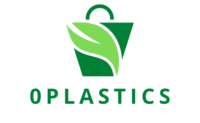Plastic and Pandemic: A Mask of Sustainability Woes
The COVID-19 pandemic, amidst its devastation, birthed a new environmental crisis: the deluge of single-use plastic masks. These masks, essential for curbing viral spread, come at a hefty cost – plastic pollution clogging landfills, oceans, and endangering ecosystems. This article delves into the challenge of reconciling vital healthcare needs with sustainable solutions.
The Plastic Paradox: At the peak of the pandemic, global mask consumption soared to an estimated 129 billion per month – 3 million a minute! These masks, predominantly polypropylene, a non-biodegradable plastic, take centuries to decompose, littering landscapes and inflicting harm on wildlife. Plastic debris in oceans entangles and poisons marine life, while discarded masks can be mistaken for food, leading to internal blockages and death. This environmental burden poses a threat to the very health we sought to protect with the masks.
Beyond Disposal: Proper disposal is crucial, but even incineration releases harmful CO2, contributing to climate change. Moreover, healthcare waste collection and treatment systems in many countries aren’t equipped for such voluminous plastic waste. This leads to improper disposal, further exacerbating the pollution crisis.
Unmasking Alternatives: The quest for sustainable alternatives is multi-pronged. Reusable cloth masks can significantly reduce waste, but efficacy concerns and proper washing practices need to be addressed. Biodegradable options, utilizing natural materials like hemp or cellulose, offer promise, but scalability and cost-effectiveness remain challenges. Researchers are also exploring mask recycling initiatives, though technological complexities and contamination risks require further development.
Policy and Awareness: Policy interventions are crucial. Bans on single-use plastic bags and straws have shown success, and similar measures for unnecessary plastic masks could be considered. Additionally, investment in research and development for sustainable alternatives, coupled with public awareness campaigns promoting responsible mask use and disposal, are essential.
A Balancing Act: Finding sustainable healthcare solutions demands a delicate balance. We must ensure public health remains the top priority while minimizing environmental impact. Collaboration between governments, scientists, industries, and the public is key. Only through collective action can we unmask this plastic pandemic and move towards a healthier future, both for ourselves and our planet.
